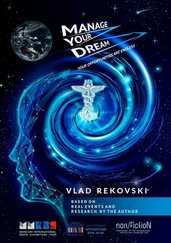Even if she wanted to, she could never leave, because rising above the canopy of trees was the gleaming belly of the lander. The one they had used to tear through the atmosphere and crash onto this new and welcoming Earth.
The planet was beautiful. The air was warm, sweet and spiced with the flecks of golden pollen that blew off the blossoms. The sand gave under her feet. Hers were the very first footprints. Astrid smiled as if this brilliant stretch of land had formed just for her. And perhaps it had. She was home, and she could feel it right to the marrow of her bones.
Later in the day, she would stretch out under the mottled shade of the trees to rest. Next week, in her position as Terra’s first astrobiologist, she would lead an expedition further into the forest with the hope of making it all the way to the peaks of the mountains beyond. She would slip into the healing water of the lagoons, which the ship’s navigator told her lay several miles east. After a year or two, voyagers from the Gamma, Delta and epsilon missions would people this Earth, filling the air with hybrid languages and native songs. They would invent new, thoughtful customs, celebrate their arrival, tell each other again and again the story of the journey. When her hair began to silver, Astrid would wrap the first new baby in her arms and say, ‘Everything good is happening at the same time.’
There was so much ahead. There was so much to discover that Astrid would never have her fill of wonder.
Someone was calling her name.
Astrid’s eyes followed the footprints along the shore and she was surprised to find her sister standing in the sand, one hand on her hip and the other shielding her eyes from the sun. She called Astrid’s name again. Behind her was a hand-painted flag. It cracked in the wind and swayed on a flagpole twice her height.
‘Astrid!’
The whites of Juno’s eyes were visible in the darkness of the dormitory. She leant up on her elbows and scowled.
‘Astrid, your alarm is ringing.’ Astrid became aware of the persistent buzz of the clock on her bedside table, and the tight edge in her sister’s voice.
‘Switch it off.’
As she fumbled for the button, Juno wriggled back under her duvet. ‘Don’t set it so early if you can’t wake up for it.’
‘I am awake,’ Astrid said, rubbing her eyes.
She thought she could still feel the sand of Terra-Two between her toes.
‘Juno?’
‘What?’
‘Have you ever dreamt of Terra-Two?’
‘Not really.’ She yawned and rolled over. ‘We’ve never been there. What would I dream about?’
‘I—’
‘It’s five a.m., Astrid. It’s too early to chat.’
Swinging her legs from under the duvet, Astrid climbed out of bed. The cycling lights in the corridor were turning the tepid amber of a sunrise. The crew module was quiet; everyone was still asleep. In an hour and a half the morning alarm would ring, the lights above her would brighten to mimic the vivid blue of a morning sky, the thunder of the crew’s footsteps would roll down the halls. They had been on the ship for two weeks now, and Astrid was surprised to find that the routine was not so different from the one they had fallen into at the space centre. They would gather around the same time in the kitchen and jostle for the coffee machine or trail sticky crumbs across the counter. At 7.30 they sat together around the kitchen table for the Daily Planning Conference. Commander Sheppard would read out a list of duties for that day, and any notices that had been uplinked from ground control the night before, then they would disperse and join the senior crew for their individual tutorials before regrouping for lunch.
That morning, Astrid thought that she might make a late start on some tutorial work that Igor had set them before their lesson later that day. She headed to the upper deck and around to the kitchen.
On her way, she passed the open door to Cai’s bedroom. The hydroponics expert was expected to arrive on a shuttle the following day. Whenever Astrid imagined him, she pictured his skin – would it be gun-metal grey from lack of sunlight? Would his bones be long and thin, distorted by the low gravity of Mars?
Further along the corridor she was distracted by the sound of a child’s voice. It was a young boy’s, filtering thinly through the open hatch by the flight deck. ‘…Daddy? When are you coming home?’
‘Stop asking him,’ said a woman.
‘I told you.’ Solomon Sheppard’s voice was still rough from sleep, undulating the way adults tended to when speaking to a child. ‘When you get a little older, you’ll come up here and live with me. In the place I’m going. Everyone will.’
‘Mummy too?’
‘Don’t put ideas into his head,’ said the woman. ‘Can you just sing. He won’t go to sleep if…’
Astrid stepped a little closer. The control deck was like an arcade, a wonder of maps, dials and spinning gauges, hundreds of colour-coded buttons lit up on different dashboards. A vast array of glowing monitors displaying the status of key components of the ship, close-circuit television screens, hand controls like joysticks.
She pressed her face against the glass to get a better view of the commander, speaking to his young son and wife. She had forgotten he was married. His wife was a fragile copper-skinned creature, cradling her son’s head against her chest. Already, her son looked bigger than Astrid remembered him. Commander Sheppard’s wife had been balancing him on her hip as she waved goodbye to the ship on launch day. Astrid had been too excited to think much of it, and Commander Sheppard rarely talked about his family. Astrid wondered, now, what Sheppard’s dreams were of Terra-Two – if he pictured it as a place for his children to grow old by his side.
‘I’ll sing your mum’s favourite,’ Solomon said, winking at his wife. Then he began to sing, and Astrid gasped in recognition. It was a Smiths song she’d loved growing up. She closed her eyes, pressing her face against the doorframe. She could almost hear the tristful guitar chords under his tenor. He was still humming it when the call shut off and the room filled with the grey light of static.
‘I love that song,’ Astrid said, opening her eyes finally.
‘Oh, really?’ Commander Sheppard must have known she was standing there, because he didn’t start or even turn around. He leant forward in his chair and pressed his hand against the monitor, as if it was a window to a darkened bedroom back on Earth.
‘How old is your son?’ Astrid asked. She felt the way she used to when they left Dalton on the weekends and spotted their teachers laughing together in the Café Nero at the train station or holding a pint at the local pub. It was like spotting a rare bird out of its habitat.
‘Three. I won’t be able to talk to him for much longer. There’s already a bit of a lag. And by the time we pass Mars real-time conversation with the Earth will already be impossible.’
‘Does your son want to be an astronaut as well?’
‘What three-year-old doesn’t?’ Sheppard turned in his seat. ‘But soon he won’t have a choice. The world is about to change, Astrid. Before the end of this century, the average global sea level is expected to rise six to nine metres. Half of the world’s population lives close to the sea and at about four degrees of warming, scientists are expecting the loss of all coastal cities. Venice, New Orleans, Tokyo, Dhaka… countries will be rendered entirely uninhabitable, vast swathes of North Africa and the Middle east, Central America. It will cause a new kind of refugee crisis, millions and millions homeless, destitute.
‘Can’t you see it happening now? An increase of extreme weather events, heatwaves and food shortages. Britain may be the first nation to land on Terra-Two, but how long until everyone who can afford it will flock to the skies? One day soon, there will be no “astronauts” or “pilgrims”, only “refugees”, “immigrants” and “fellow travellers”.’ He was silent for a moment. ‘My son will likely have no choice,’ he finally said. ‘Nor will his sons and daughters.’
Читать дальше






![Theresa Cheung - The Dream Dictionary from A to Z [Revised edition] - The Ultimate A–Z to Interpret the Secrets of Your Dreams](/books/692092/theresa-cheung-the-dream-dictionary-from-a-to-z-r-thumb.webp)





